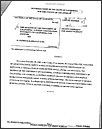Advertisement
Grab your lab coat. Let's get started
Welcome!
Welcome!
Create an account below to get 6 C&EN articles per month, receive newsletters and more - all free.
It seems this is your first time logging in online. Please enter the following information to continue.
As an ACS member you automatically get access to this site. All we need is few more details to create your reading experience.
Not you? Sign in with a different account.
Not you? Sign in with a different account.
ERROR 1
ERROR 1
ERROR 2
ERROR 2
ERROR 2
ERROR 2
ERROR 2
Password and Confirm password must match.
If you have an ACS member number, please enter it here so we can link this account to your membership. (optional)
ERROR 2
ACS values your privacy. By submitting your information, you are gaining access to C&EN and subscribing to our weekly newsletter. We use the information you provide to make your reading experience better, and we will never sell your data to third party members.
Lab Safety
Charges Brought In UCLA Researcher’s Death
Lab Safety: UC system, professor face felony counts in death of Sheri Sangji
by Jyllian Kemsley
December 29, 2011
PDF of court documents.
The Los Angeles County District Attorney’s Office filed charges against the University of California and UC Los Angeles chemistry professor Patrick Harran on Dec. 27, 2011, for felony violations of California labor laws in the death of a staff research assistant three years ago.
Sheharbano (Sheri) Sangji, 23, died on Jan. 16, 2009, from injuries sustained in a fire 18 days earlier in a UCLA chemistry laboratory. Working with tert-butyllithium, which ignites spontaneously in air, she was drawing the chemical from a bottle into a syringe when the plunger came out of the syringe barrel (C&EN, Aug. 3, 2009, page 29). Sangji was not wearing a lab coat, and the chemical splashed onto her clothes and set them on fire. Sangji was burned on her torso, arms, and hands.
The charges center on a section of the California labor code that makes it a crime for any employer or employee manager to willfully violate any occupational safety or health standard in a way that causes death or prolonged injury to an employee. According to the California penal code, “willfully” means that the employer’s actions were not accidental, although it does not imply that the employer intended to break the law or injure an employee.
The charges specifically cite regulations involving failure to correct unsafe workplace conditions and procedures in a timely manner, failure to require work-appropriate clothing and personal protective equipment, and failure to provide chemical safety training to employees.
The California Division of Occupational Safety & Health cited UCLA’s department of chemistry and biochemistry in 2009 for violating the same regulations and fined the university a total of $31,875 (C&EN, May 11, 2009, page 7).
If convicted of the felony charges, Harran faces up to four-and-a-half years in state prison, district attorney spokeswoman Jane Robison says.
A warrant was issued for Harran’s arrest. Harran is out of town for the holidays and will surrender to authorities as soon as he returns, says Thomas P. O’Brien, Harran’s attorney. O’Brien declined to comment further on the case.
The university faces fines of as much as $4.5 million and is scheduled to be arraigned on Jan. 12, Robison says.
Calling the charges “outrageous,” UCLA Vice Chancellor for Legal Affairs Kevin S. Reed says that the university will defend itself “with a great deal of vigor.”
Sangji’s death was an “unspeakable tragedy, but it’s not a crime,” Reed adds. “What happened that day was not the fault of UCLA acting willfully in violation of workplace safety standards.” Reed fears that the charges will have a chilling effect on the ability of California institutions to attract research scientists.
Since Sangji’s death, UCLA has increased laboratory training and inspections, purchased flame-resistant lab coats for researchers who use flammable reagents, and established a center to promote research into lab safety programs (C&EN, April 4, 2011, page 11).
Sangji’s sister, Naveen Sangji, says the charges are “the first step to hold UCLA and Harran accountable for the excruciating pain and the suffering they put Sheri through.” Naveen and her family hope that there won’t be a plea bargain and that the case will go to trial, she says, adding that “we hope that this will keep other people safe from harm and keep other families from being hurt the way ours has been.”






Join the conversation
Contact the reporter
Submit a Letter to the Editor for publication
Engage with us on Twitter